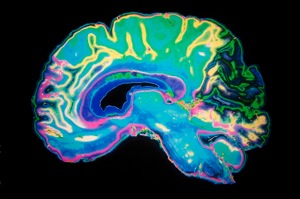Dementia cases doubling–how to lower your risk when you have Hashimoto’s hypothyroidism

The numbers of people with dementia are expected to more than double in 30 years and outpace both heart disease and cancer in terms of cost. Because dementia can take root in the brain years or decades before symptoms appear, you can take action now to avoid becoming part of this skyrocketing statistic. Correctly managing Hashimoto’s hypothyroidism, an autoimmune disease, is one important facet to lowering dementia risk.
Today, nearly 15 percent of people aged 71 or older have dementia—almost 4 million people. Experts predict that number will more than double to 9 million people by 2040, costing the country more than $500 billion.
What’s worse is these statistics do not include mild cognitive impairment (MCI), or “pre-dementia,” which accounts for another 22 percent of people over 71.
How to lower your risk of dementia if you have Hashimoto’s hypothyroidism
Some experts say there is no way to prevent dementia, but studies show diet and lifestyle influence brain health. We can use that knowledge to lower the risk for dementia.
For instance, poor diet and lifestyle choices can cause inflammation throughout the body, which ultimately inflames the brain and accelerates the degeneration of brain tissue. It may cause symptoms such as brain fog or a gradual decline in cognition, but the average person will not connect this with an increased risk of dementia later in life.
The good news is you can slow the rate of brain degeneration and lower your risk of dementia with the following tips:
- Manage your Hashimoto’s hypothyroidism. Hashimoto’s is an autoimmune disease and requires you manage the immune system more so than the thyroid gland. Sufficient thyroid hormones are necessary to prevent brain inflammation. Foundational is an autoimmune diet. For more information, read the book Why Do I Still Have Thyroid Symptoms?
- Ditch the sugar, processed starchy foods, and junk foods. These foods lead to insulin resistance (pre-diabetes) and Type 2 diabetes. The link between a sugar-laden diet and brain degeneration is so strong some researchers call Alzheimer’s “Type 3 diabetes,” a totally diet and lifestyle driven disease. Sugars and processed starches and the insulin surges they create are devastating to brain health.
- Avoid hydrogenated oils (trans fats) found in processed foods, pastries, and many restaurant fried foods. The brain is mostly fat and the fats you eat play a role in its health. Hydrogenated fats are more like plastic than food and research shows eating hydrogenated fats leads to loss of cognitive function and smaller brain volume, evidence of degeneration. Eat healthy fats such as coconut oil, olive oil, and seafood, and get plenty of omega 3 essential fatty acids. Ask my office how you can do this to lower your risk of dementia.
- Go gluten-free and ditch other food intolerances. Celiac disease and gluten sensitivity have been found to damage neurological tissue more than any other tissue in the body. Gluten causes brain inflammation in many people, which accelerates brain degeneration, increasing the risk of dementia. Find out through testing or an elimination diet whether you have intolerances to foods that could be triggering brain inflammation and degeneration. As studies have linked gluten with Hashimoto’s hypothyroidism, it is particularly important to strictly avoid gluten.
- Exercise your body and your brain. Exercise has been well documented as a way to boost brain health and lower your risk of dementia. You should engage in both aerobic exercise and weight training for ultimate dementia prevention. You should also exercise your brain with mentally stimulating activities, such as learning new things, reading, writing, playing chess, etc.
You need to be both a scholar and an athlete to prevent dementia
As Dr. Kharrazian says in his book Why Isn’t My Brain Working?, if you want to lower your risk of dementia and enjoy optimal brain health, you need to be both a scholar and an athlete. Ask my office for more ideas on how to boost your brain health and lower your risk of dementia, as well as manage your Hashimoto’s hypothyroidism.